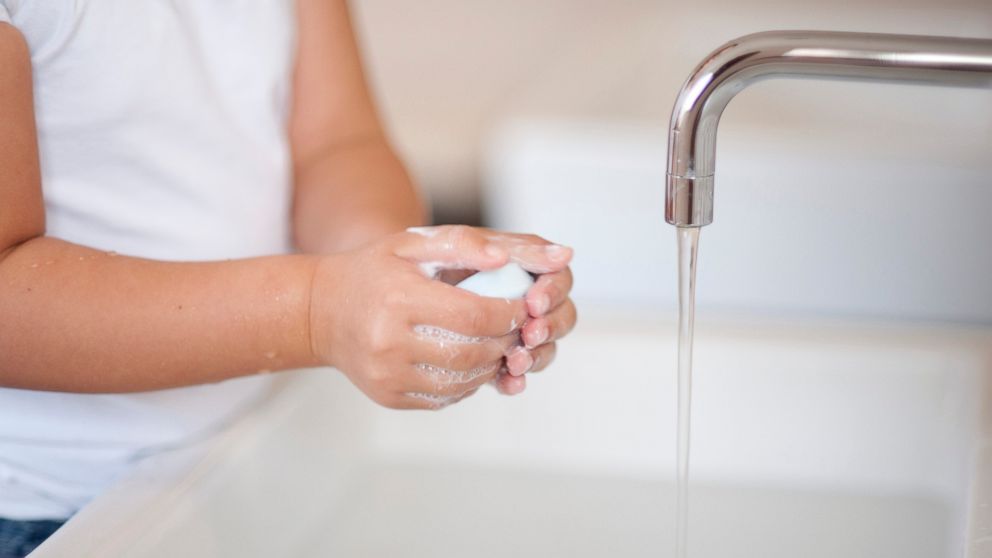Ways You’re Washing Your Hands Wrong
And you thought you mastered hand-washing as a kid.

— -- intro: Everyone masters hand-washing as a kid—or so you thought. In a 2013 Journal of Environmental Health study, just 5% of participants washed their hands long enough after using the bathroom. What’s more, 23% didn’t use soap, and 10% didn’t bother to wash their hands at all. Gross!
Lathering up is one of the best things you can do to prevent the spread of germs, especially during cold and flu season. Read on for five mistakes you may be making.
27 Mistakes Healthy People Make
quicklist: 1category: Ways You’re Washing Your Hands Wrongtitle: You skip handwashing on occasionurl:text:Failing to wash your hands after using the bathroom is just not OK. Your decision to leave without a rinse means you’ll be dragging out your own germs and as well as the bacteria you picked up from the door lock, toilet flusher, and other surfaces. Then, you’ll deposit those germs on anything you subsequently touch.Not washing your hands allows these suckers to stick around, and that’s bad news if you want to prevent illness. “Skin forms a nice barrier between us and the bugs,” says Aileen Marty, MD, a professor of infectious diseases at Florida International University in Miami. “But mucosal surfaces, like your eyes, mouth, and genitals, are more porous so germs can get sucked in.”
That means any germs you pick up in the bathroom can linger and potentially spread if you touch another porous area, particularly your mouth—not to mention they can get passed to another person who comes in contact with your dirty hands. Consider this: The average person touches his or her face 16 times an hour, says Charles Gerba, PhD, a microbiologist at the University of Arizona.
If you don’t already, you should also wash your hands before eating or preparing a meal, so the food doesn’t get contaminated either (hello, food poisoning!).
14 Types of Food That Can Make You Sick
quicklist: 2category: Ways You’re Washing Your Hands Wrongtitle: You don’t use soapurl:text:Soap does a lot more than make your hands smell nice. Soap is a chemical concoction made specifically for lifting sticky bugs off your skin. Since the surfaces of bacteria and viruses are made partly of fatty materials, ingredients in soap create a chemical reaction that grabs onto the germs so they rinse right off with the lather, Dr. Marty says.
Alcohol-based formulas can kill more germs faster than plain soap and water, adds Elaine Larson, PhD, a professor of epidemiology in nursing at Columbia University Mailman School of Public Health in New York City. But don’t waste your time on antibacterial products with the ingredient triclosan. There’s no evidence that these soaps work better than regular or alcohol-based soaps, and some studies suggest they may contribute to antibiotic resistance and have “unanticipated hormonal effects” in people over the long-term, according to a 2013 U.S. Food and Drug Administration consumer update. Additionally, no evidence exists proving that triclosan provides any clear benefit against bacterial contamination.
Another thing to keep in mind: Liquid soap tends to be more effective than bar soap because it’s less likely to be contaminated, Dr. Marty says.
When you’re in a pinch, a hand sanitizer that’s made with at least 60% alcohol can help too, though it tends to be less effective on super-germy or greasy hands, per the CDC. That’s why good old soap and water will always be the number-one choice.




